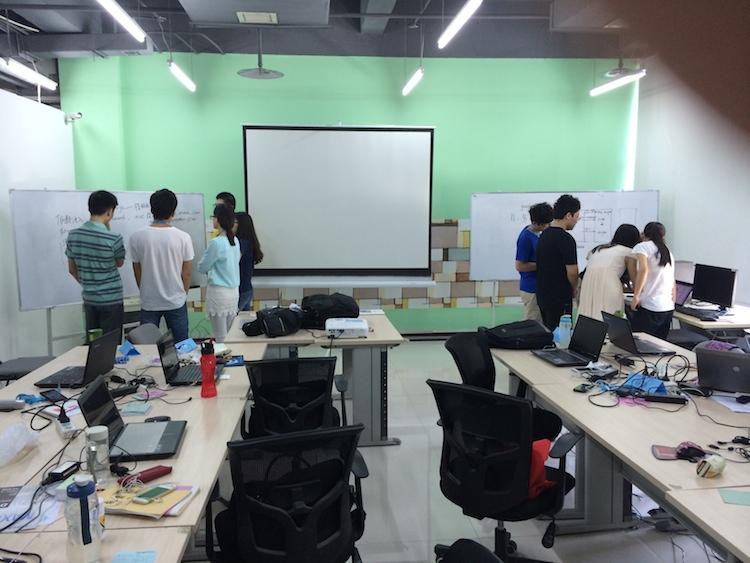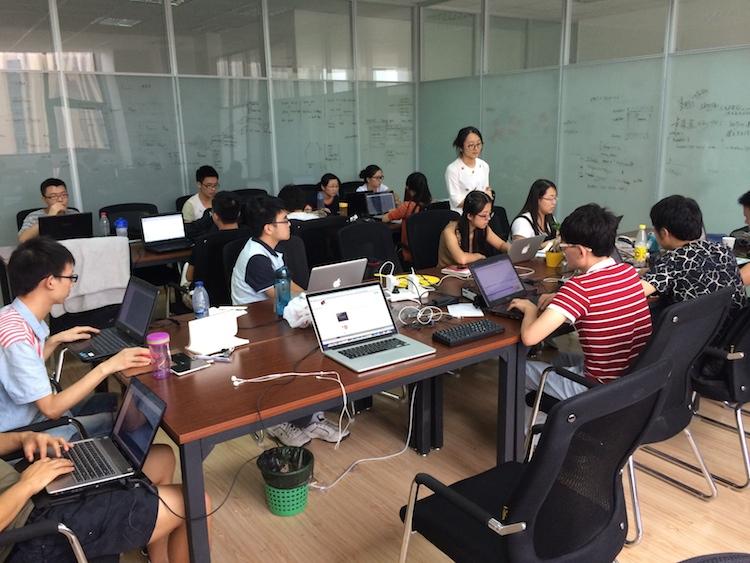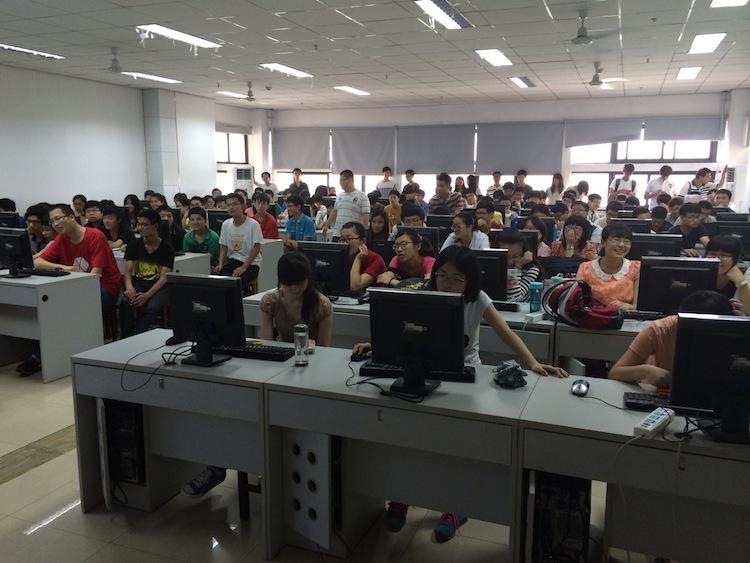
Innovation in Education: Learning to Break the Rules
There is a Chinese phrase - 扬汤止沸 (yang tang zhi fei) - which means to stop water from boiling over by skimming it off the top and pouring it back. The underlying meaning is that you think you are solving a problem but, in reality, you are not tackling the root cause. This proverb describes the challenge organizations face when competing for agile creative talent today. We could recruit more heavily and pay more, or we could look to the root cause of the problem. What is needed is for our colleges in China to develop more of these skills. At Thoughtworks China, we have been working on a collaborative model that links students, schools and industry.
The Problem of Not Enough People
I worked on delivery projects at Thoughtworks since 2012 and it was during that time that I gained experience on agile methodology and its practices. On one occasion, I was asked by a very small company to help them build an agile team, which would work exactly as a Thoughtworks team did.

Initially this request didn’t seem any different from the demand of any large corporation. However, it’s a different thing when the organisation doesn’t have the people necessary to build that team. The requirement was to identify, recruit and train the people that would eventually form the agile team. Needless to say, it was a nightmare finding the right people to work in an agile environment for this small company with little to no reputation in the marketplace.
No matter the size of the organisation - small or the traditional large corporation - people come together to form a team and their mindset can be changed to make them suitable to work in an agile environment. But that’s an expensive process and organisations are often faced with the pressure of a delivery deadline. Is that the best solution? Perhaps not. To stop the water from boiling over, we should perhaps take away the firewood from under the boiling cauldron (yes, that’s another Chinese expression), and tackle the root cause.
How to Build A Candidate from Scratch
For this strategy, universities are a potentially powerful collaborator. It is important to tap their direct access to students. In China, college education needs an uplift. No realistic apprenticeship opportunities, outdated teaching techniques and meaningless tests fill our whole college life. Interestingly, many of the students don’t have bad habits. Actually, they don’t have any habit at all. Students are similar to sheets of white paper, which can potentially be stained or drawn upon to make into a beautiful painting.

Instead of looking all over the place for people with several years of work experience and then convincing them to join a small organisation with limited brand strength, we decided to train university students with the help of a training agency. In China, training agencies are the hub for university students from tier two cities who are eager to join good companies. These students often have no other means to seek out opportunities in larger cities and so rely heavily on the training agency. In addition to upskilling the university students, the agencies help them find jobs. Our partnership with the training agency promised a better and more up-to-date training to their students. It was a win-win situation for all. We trained the students to write clean code within one month and took them through the agile methodology and practices.
Eventually, we recruited the most aligned as interns. These interns were no different than from those we hired from other channels - they are part of projects and are members of the delivery team. The duration of the internship was dependent on when they graduated from school. On an average, it lasted about six months.
Soon enough, we were successful at building the agile team for the small company within one year. We made it happen! That led me to wonder: could we scale this? Can we do this across China? Could this example of stopping the water from boiling over by skimming it off the top become history? Could I change the industry-thinking and take our business to a new level? This was all very exciting!
Creating a Larger Partnership
The Managing Director of Thoughtworks China, Hu Kai, interrupted my questioning zone to ask me if I would experiment with this model for Thoughtworks. No prize for guessing my answer. Sure enough, my response was "Yes, of course"! Armed with the Thoughtworks brand and my big vision, I was set to impact the student experience at university and improve the quality of the Computer Science course in China.

School, students and industry should exist as a cycle. Schools educate students; the industry in turn, provides the knowledge back to schools, keeping them current. It ensures the curriculum at school or university is relevant and up-to-date with industry standards. It is unfortunate that, right now, the link between industry and school is non-existent.
Let’s go change it! Today!
A Business Model for Scaling
Hu Hao and Wei Zhaoyu joined me on my mission last year. This was going to be a combined effort as they share my passion. Like Thoughtworks, we have our three pillars:
Pillar 1: We will supply well-trained graduates to Thoughtworks.
Pillar 2: Inspired by Talent Is Overrated, we should prepare deliberate practices to ensure the students are more effective.
Pillar 3: We should impact people across all cross-sections like factory workers and schools in rural areas. We should introduce change in the computer science curriculum at university.
The path to sustainability is by providing the software talent to Thoughtworks. It may seem like a challenge to find the people that Thoughtworks wishes to hire. It even sounds like a plot for the next Mission Impossible movie. That aside, I love impossible missions. Only the impossible is worth fighting for. Innovation is being faced with the challenge getting the desired result without compromise.
Once again, we collaborated with the training agency. They brought in the students, whom we trained over four months. At the end of which, we recruited nine of them as interns - success stories that were shared with the universities.
To date, we have influenced two colleges. One of them has not only changed to our suggested course for their junior students, but they also have us teach the course as faculty. The other is considering changing its curriculum to include one or two of our courses.
We still have a long way to go. There are many other challenges to overcome - like the need to upskill and remove mediocrity of teachers in colleges. We are far away from success. But that’s precisely what makes this project so fascinating and rewarding.
Do you have a passion for changing the technology education in your country? We would love to hear ideas from you. Send us an email at jtong@thoughtworks.com.
See how we are transforming how children learn to read with a new reading app, Learn With Homer.
Disclaimer: The statements and opinions expressed in this article are those of the author(s) and do not necessarily reflect the positions of Thoughtworks.














